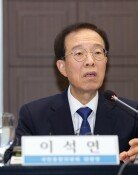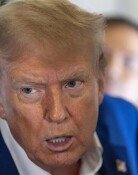Yoon-Lee meeting requires mutual understanding and restraint
Yoon-Lee meeting requires mutual understanding and restraint
Posted April. 29, 2024 08:01,
Updated April. 29, 2024 08:01
President Yoon Suk Yeol and Democratic Party leader Lee Jae-myung are scheduled to convene at the Yongsan Presidential Office this afternoon. This tea meeting, expected to last about an hour, marks the first occasion in approximately two years for the two leaders to engage in discussions concerning state affairs since the commencement of the current administration. Given the failure to reach a consensus on the agenda during two prior coordination attempts, the meeting has been arranged as a tea gathering rather than a formal luncheon. With numerous pressing issues requiring their attention, ranging from political tensions to socioeconomic concerns, both leaders face the challenge of fostering productive outcomes from their discussions.
The Presidential Office has disclosed that the primary focus of the upcoming meeting will be on addressing people's livelihood issues. Furthermore, the Presidential Office has clarified its intent to consider Lee's perspective attentively and collaboratively seek resolutions to bridge the medical gap resulting from legislative conflicts. In contrast, the Democratic Party has declared its intention to propose a supplementary budget of 13 trillion won to provide 250,000 won to every citizen. Additionally, they have emphasized the importance of the president refraining from exercising his veto concerning the passage of the special prosecution law, particularly regarding suspicions of external pressure in investigating the Private First Class Chae, which may involve the Kim Keon Hee Special Prosecution Act. The Democratic Party has also expressed its desire to engage in discussions regarding the reenactment of bills such as the Grain Management Act, previously advocated by the party but vetoed by the president.
Today's meeting marks a crucial initial step towards revitalizing political dialogue between the President and representatives of both ruling and opposition parties, despite evident differences in their stances. Despite the absolute necessity for cooperation from the opposition in the National Assembly, the fact that there hasn't been a single meeting between the president and the leader of the main opposition party in the past two years symbolizes a political vacuum. Despite facing the aftermath of a decisive defeat in the April 10 general elections, laying the groundwork for collaborative governance is imperative, echoing President Yoon's commitment to actively engage in political processes.
At this juncture, what is urgently needed is a baseline of mutual restraint and understanding, whether in politics or cooperation. The president who has experienced a divided national assembly or Lee, who has not received any answer to repeated meeting requests, must have a lot to say. While Lee may face pressures to leverage the momentum from the landslide victory in the general election to exert pressure on the President, both must demonstrate the maturity to engage in candid conversations and attentively listen to each other's perspectives. Although hardliners on either side may express discontent, discussions like today's inaugural meeting must continue, laying the groundwork for ongoing dialogue.
Yoon and Lee may harbor deep resentments following the presidential election, but our society cannot afford to prioritize these sentiments over pressing matters. Today, issues beyond adhering to public sentiment and addressing the people's livelihoods should take a backseat. This approach befits the stature of a president and the leader of the largest party.



![[속보]美 “미국인은 이란 당장 떠나라” 대사관 긴급 공지](https://dimg.donga.com/c/138/175/90/1/wps/NEWS/IMAGE/2026/01/13/133147285.1.jpg)



